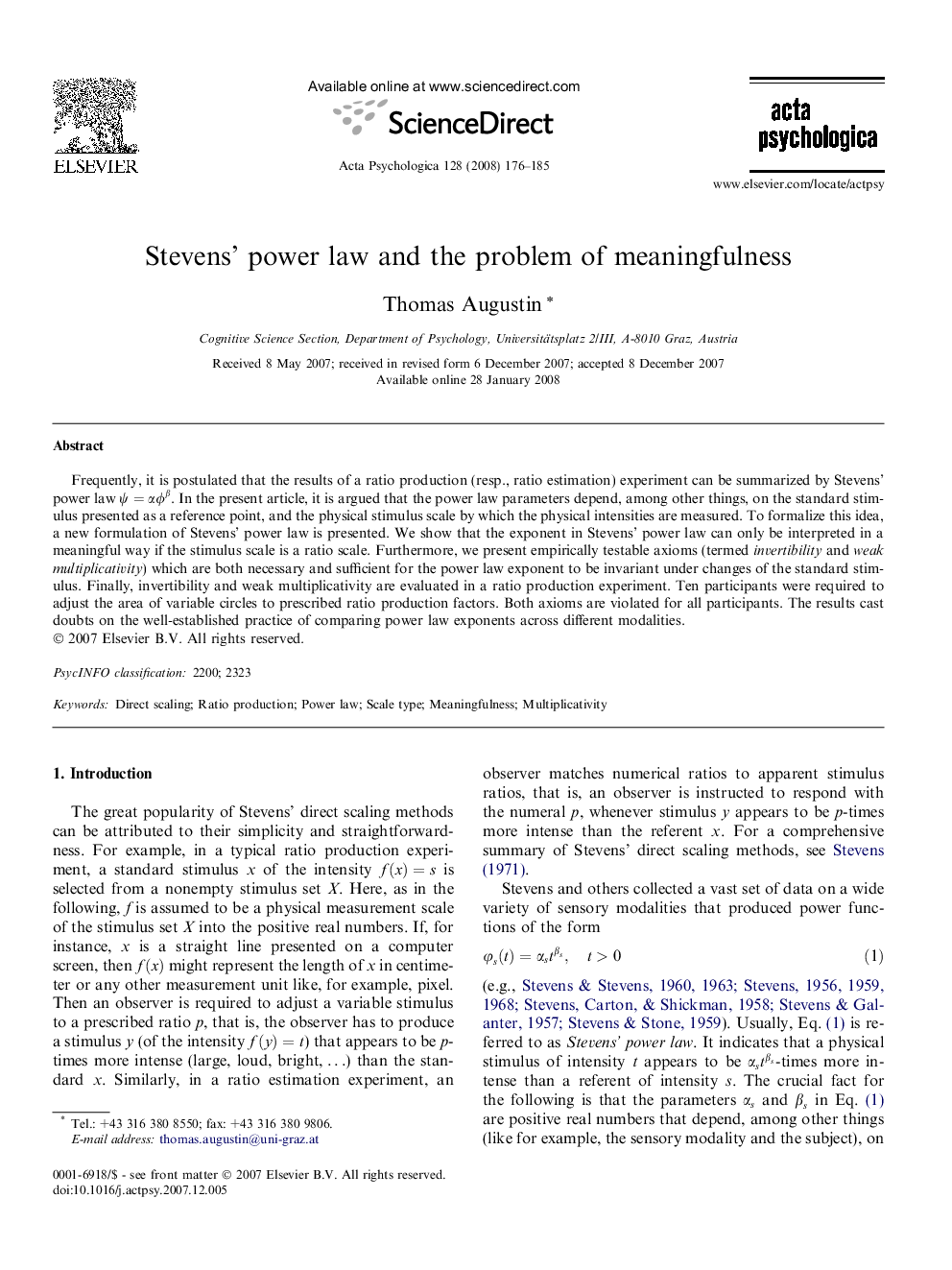| Article ID | Journal | Published Year | Pages | File Type |
|---|---|---|---|---|
| 920430 | Acta Psychologica | 2008 | 10 Pages |
Frequently, it is postulated that the results of a ratio production (resp., ratio estimation) experiment can be summarized by Stevens’ power law ψ=αϕβψ=αϕβ. In the present article, it is argued that the power law parameters depend, among other things, on the standard stimulus presented as a reference point, and the physical stimulus scale by which the physical intensities are measured. To formalize this idea, a new formulation of Stevens’ power law is presented. We show that the exponent in Stevens’ power law can only be interpreted in a meaningful way if the stimulus scale is a ratio scale. Furthermore, we present empirically testable axioms (termed invertibility and weak multiplicativity) which are both necessary and sufficient for the power law exponent to be invariant under changes of the standard stimulus. Finally, invertibility and weak multiplicativity are evaluated in a ratio production experiment. Ten participants were required to adjust the area of variable circles to prescribed ratio production factors. Both axioms are violated for all participants. The results cast doubts on the well-established practice of comparing power law exponents across different modalities.
